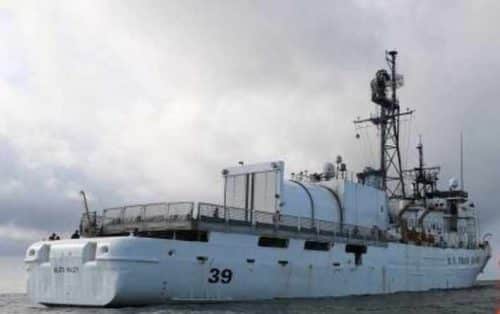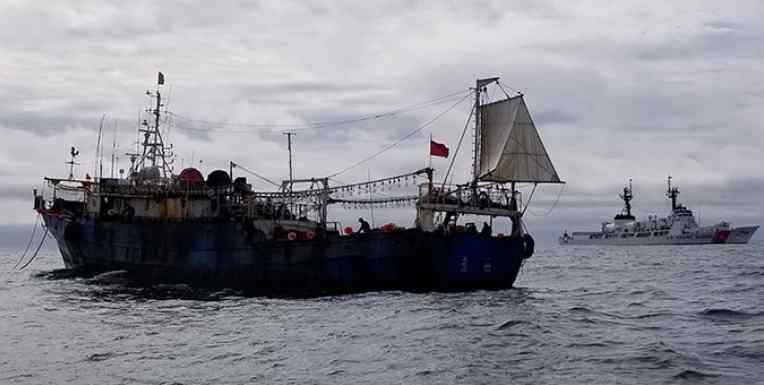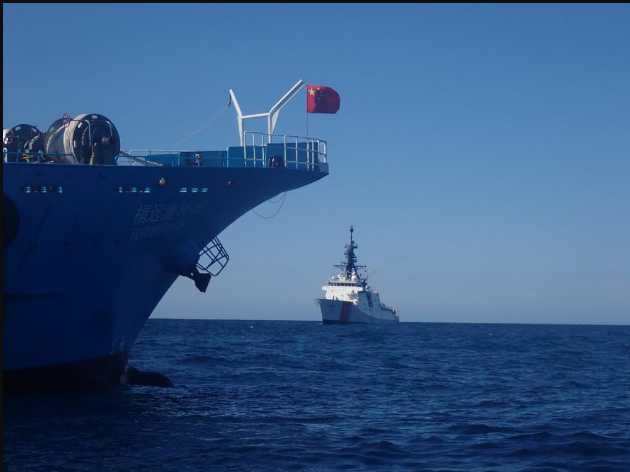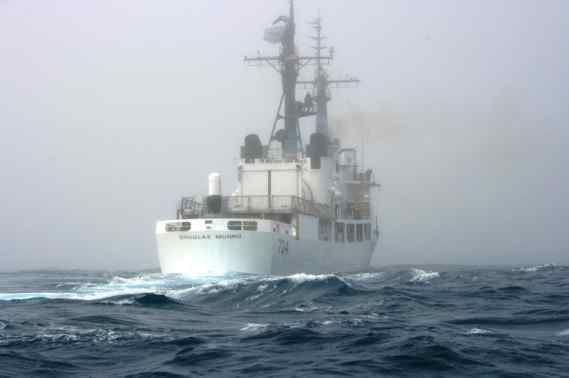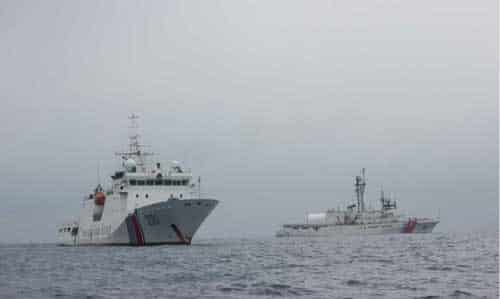
JUNEAU, Alaska – The crew of the Coast Guard Cutter Alex Haley detained the fishing vessel Run Da suspected of illegal, unreported, unregulated fishing activity Saturday in international waters 860 miles east of Hokkaido, Japan.
The crew of the Alex Haley, a 282-foot medium endurance cutter homeported in Kodiak, and People’s Republic of China Coast Guard officers conducted a joint international boarding on the high seas of the Chinese-flagged fishing vessel Run Da.
A U.S. Coast Guard Air Station Kodiak C-130 aircraft, forward deployed on a North Pacific Coast Guard Forum multi-national fisheries enforcement patrol supported by Canada, China, Japan, Russia and the Republic of Korea, sighted the suspected IUU fishing vessel.
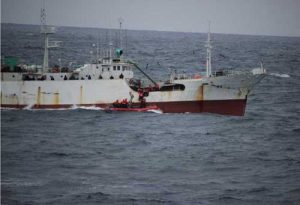
Upon arriving on scene, the U.S. Coast Guard and PRC Coast Guard conducted a set of pre-boarding questions over VHF-FM radio to confirm fishing activity and nationality. After questioning was complete and clearance to board was obtained from both United States and China, the Alex Haley boarding team deployed to assist the PRC Coast Guard investigation and to document the suspected illegal fishing activity.
The fishing vessel is suspected of violating the worldwide driftnet moratorium called for by the United Nations General Assembly Resolution 46/215. The captain of the Run Da admitted to fishing with driftnets up to 5.6 miles in length. The joint boarding team discovered one ton of squid and 80 tons of chum salmon on board.
The Alex Haley crew transferred custody of the Run Da and its crew Thursday to PRC Coast Guard vessel 2301 in the Sea of Japan approximately 92 miles west of Japan. PRC Coast Guard vessel 2301 will escort the Run Da back to China for prosecution. The PRC has jurisdiction for any enforcement actions taken upon the vessel, master and owner.
The joint U.S. and China high seas boarding and inspection was conducted pursuant to the Memorandum of Understanding between the Government of the United States of America and the Government of the People’s Republic of China on Effective Cooperation and Implementation of United Nations General Assembly Resolution 46/215 of December 20, 1991.[xyz-ihs snippet=”Adversal-468×60″]
The MOU, signed Dec. 3, 1993, established boarding procedures for law enforcement officials of either country to board and inspect U.S. or Chinese-flagged vessels suspected of high seas driftnet fishing. The MOU also established a shiprider program, which permits Chinese fisheries enforcement officials to embark on U.S. Coast Guard vessels or aircraft.
China provided 111 enforcement officials to the U.S. Coast Guard for joint fisheries enforcement operations since the MOU first entered into force in 1993. This cooperation led to 22 interdictions and enforcement actions against vessels engaged in large-scale, high seas driftnet fishing activity.
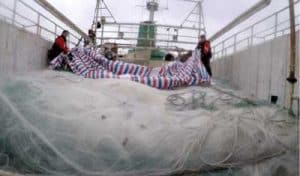
“The U.S. Coast Guard is committed to preserving the world’s fragile marine ecosystems, not only to ensure economic prosperity today but to ensure thriving oceans for future generations,” said Capt. Darran McLenon, chief of response for the 17th Coast Guard District. “This case was the first apprehension of a large-scale, high seas driftnet vessel since 2014 and highlights the successful fisheries enforcement cooperation and patrols of the U.S., Canada, China, Japan, Russia and the Republic of Korea, including the force multiplying value of shiprider agreements, which enables joint high seas boarding and inspections to detect and deter illegal, unreported and unregulated fishing.”
The Alex Haley and its 105 crew members are on a North Pacific multi-national fisheries enforcement patrol supported by Canada, China, Japan, Russia and the Republic of Korea. The crew conducts homeland security, search and rescue, and international and domestic fisheries enforcement missions in the Bering Sea and other Alaskan waters.
Source: USCG



